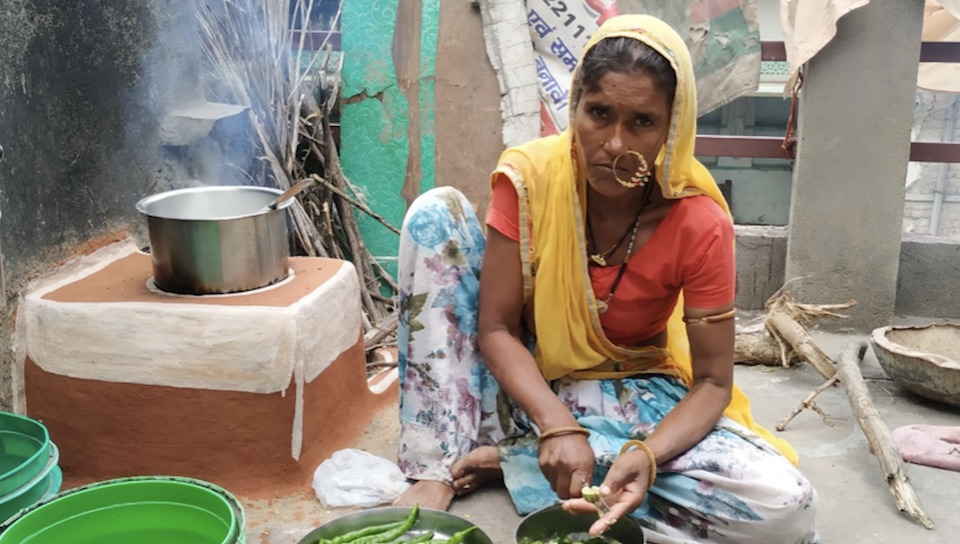- Authors: Sangita Vyas, Aashish Gupta, Nazar Khalid
- Published in: World Development
- Download paper
Abstract
Exposure to air pollution from cooking with solid fuels has important consequences for public health. This paper focuses on rural north India, where despite robust economic growth and government subsidies, seven out of eight households mainly use solid fuels.
We draw on new qualitative and quantitative data, and a recent policy environment that dramatically expanded ownership of liquid petroleum gas (LPG), to examine why households are slow to adopt clean fuels in rural north India. We find that patriarchal gender norms and attitudes encourage the use of solid fuels in this region.
North Indian society confers low status to women, promotes women's seclusion, and constrains women's engagement in economic activities outside of the home. These beliefs encourage women to preserve gas, promote women's work that facilitates the use of solid fuels, and hinder communication between the cook and the decision-maker regarding LPG refills.
When rural north Indian households use gas, it is frequently to facilitate the adherence to norms of seclusion that prevent women from leaving the home to collect solid fuels.
Future research and policy interventions should pay careful attention to the gender norms and attitudes that discourage the use of gas. Addressing these beliefs is essential to sustained LPG use and health improvements.
Photo by Nazar Khalid.

